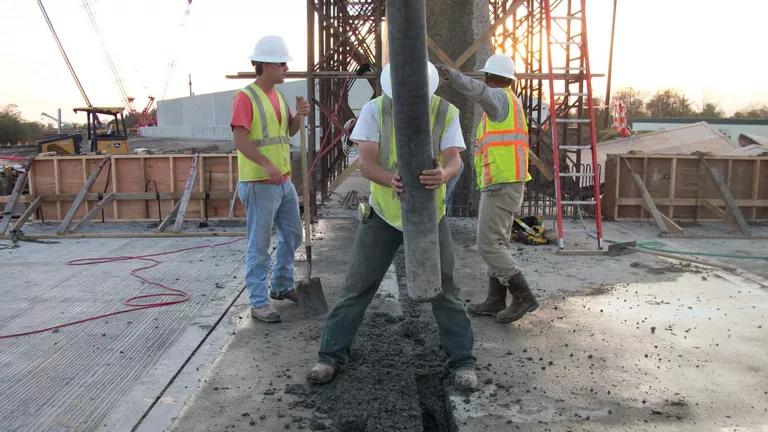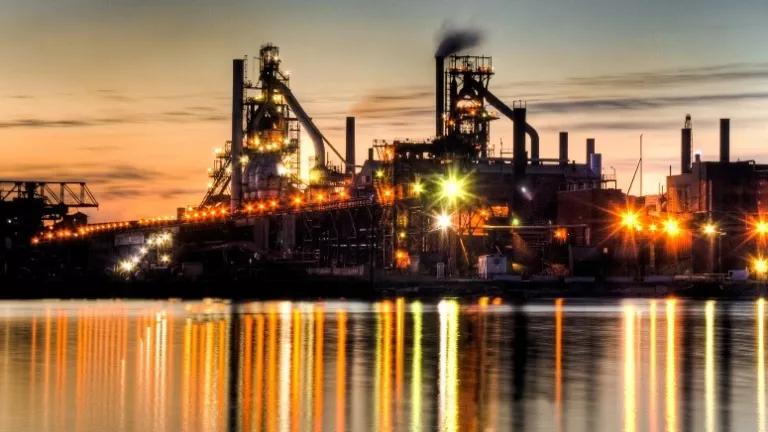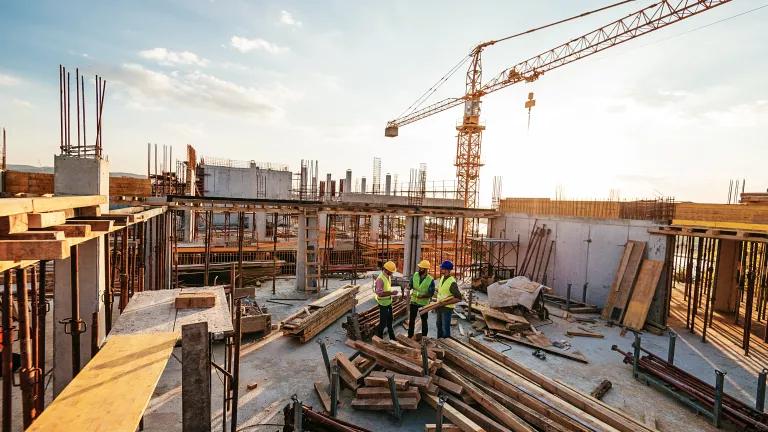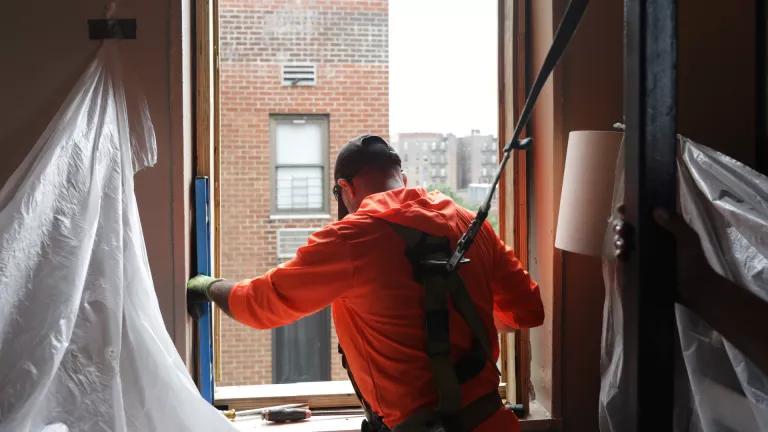New Jersey Adopts First-of-a-Kind Low Carbon Concrete Law
The passage of the law is the end result of an unwavering awareness-raising and advocacy campaign.

U.S. Army Corps of Engineers
This is a guest blog by Chris Neidl. Chris is a policy consultant to NRDC's cement decarbonization team and lead author of NRDC's Design Guide to State and Local Low-Carbon Concrete Procurement.
New Jersey Governor Phil Murphy kicked off this week by signing the New Jersey Low Embodied Carbon Concrete Leadership Act into law. “LECCLA” arrived on the Governor’s desk just before the new year following the bill’s passage in the state senate (S371- Greenstein, Singleton) and assembly (A2234 - McKeon, Timberlake, Calbrese) with overwhelming bi-partisan support.
In so doing Governor Murphy has set in motion the implementation of a state-led approach to eliminating embodied carbon emissions in concrete that is the first of its kind in the United States. Public procurement is the focal point of the policy, with the aim of mobilizing the significant market influence of state agencies as the single largest purchasers of concrete in New Jersey, and the state’s position as lead regulator of specifications, standards, and codes related to the material and its use. But what sets NJ LECCLA apart from other concrete decarbonization programs enacted or proposed in recent years is the novel incentive mechanism at its heart: LECCLA will leverage market dynamics to realize both short- and long-term carbon emissions reductions in this essential industry.
Beginning in 2024, concrete producers who supply at least 50 yards of concrete for state funded construction projects will be eligible for a performance-based tax credit if the concrete they deliver for things like foundations, bridges, and sidewalks also delivers quantifiable reductions in embodied carbon. Prior to the implementation of the tax credit program, the New Jersey Department of Environmental Protection (DEP) will be charged with establishing embodied carbon baselines for concrete, measured in global warming potential (GWP), a value that quantifies the kg of CO2 generated per 1 m3 of concrete. Producers who submit certified Environmental Product Declarations (EPDs) that validate GWP scores that fall below this baseline will be awarded a tax credit of up to 8% of the total cost of the contract. In a competitive commodity industry characterized by razor thin margins, such an incentive creates a powerful market signal for producers; yet one that is relatively low cost for the New Jersey taxpayer. To limit the program’s fiscal impact, the total amount of tax credits that can be issued each year is $10 million, to be issued on a first-come-first-served basis. And no single concrete producer can claim more than $1 million in credits per year.
Reflected in this simple set of rules is a distinct vision of how states can best use public resources and authorities to drive decarbonization in the concrete sector. Most notably, the program builds on the Buy Clean model, which has been implemented for other materials in California, and is also being considered or planned in several other states, as well as federally with funding made available in the Inflation Reduction Act. In short, Buy Clean sets a benchmark GWP value for materials that all publicly funded construction projects must comply with to do business with the state. This benchmark can then be made more stringent over time.
LECCLA builds on the Buy Clean model, introducing an additional and complementary tax incentive for concrete producers to not simply meet the established performance baseline, but to overperform by delivering EPD-verified orders that fall below the baseline.
This mechanism is designed to have the immediate effect of driving down embodied carbon in concrete by giving producers a clear and compelling reason to adopt (and layer) off-the-shelf methods and technologies likely to result in sub-baseline GWP scores. In the long run, a sustained incentive of this kind can help accelerate the rate at which new innovations are discovered and adopted by private producers, mobilizing the market to seek, assess, and embrace new options with the potential to earn tax credits at the lowest cost.
This market dynamic is particularly significant within the context of deeply decarbonizing a sector like concrete manufacturing. There are many available, low-cost ways to drive down embodied carbon in concrete today, and this policy will give producers a strong reason to adopt them. However, full decarbonization will require a host of new innovations, implemented throughout the supply chain, many of which are just emerging today commercially, and many more still at an early research phase. LECCLA’s simple design gives the private sector a powerful stake in identifying these solutions as they emerge to a point of commercial readiness.
Further, LECCLA can also build upon other policy advancements too, such as low carbon concrete specifications and performance-based specifications, which have gained hold in different jurisdictions throughout North America, including New York State, where a version of the LECCLA legislation was first introduced in 2020.
As NJ LECCLA comes into effect and evolves in time, New York is particularly well positioned to raise the bar further in 2023. The Empire State’s own LECCLA law, signed by Governor Kathy Hochul in January 2022, did not directly require the state to implement an incentive program like New Jersey’s, but instead established a multi-disciplinary stakeholder process to examine this approach and make recommendations to adopt or not adopt some version of it. That process is scheduled to commence next month. With LECCLA now law next door, policymakers in New York now have a defined policy option to consider in very specific terms, with a view to implementation.
In hindsight, the wisdom of LECCLA might seem obvious. However, the passage of the law was far from inevitable. It is the end result of two years of an unwavering awareness raising and advocacy campaign, led from the grassroots by volunteer citizen activists Sue Dorward and Sean Mohan with the OpenAir Collective, and with continuous, indispensable support from the New Jersey League of Conservation Voters, NRDC, and a coalition of nearly two dozen environmental and private sector stakeholder organizations. Readers are invited to join a free webinar on February 8th at 11am EST, hosted by OpenAir, that will share insights and lessons gained from the NJ LECCLA campaign from those who led it to ultimate success. All are welcome to attend to learn and replicate what is shared in their own state or city. Watch this space!



